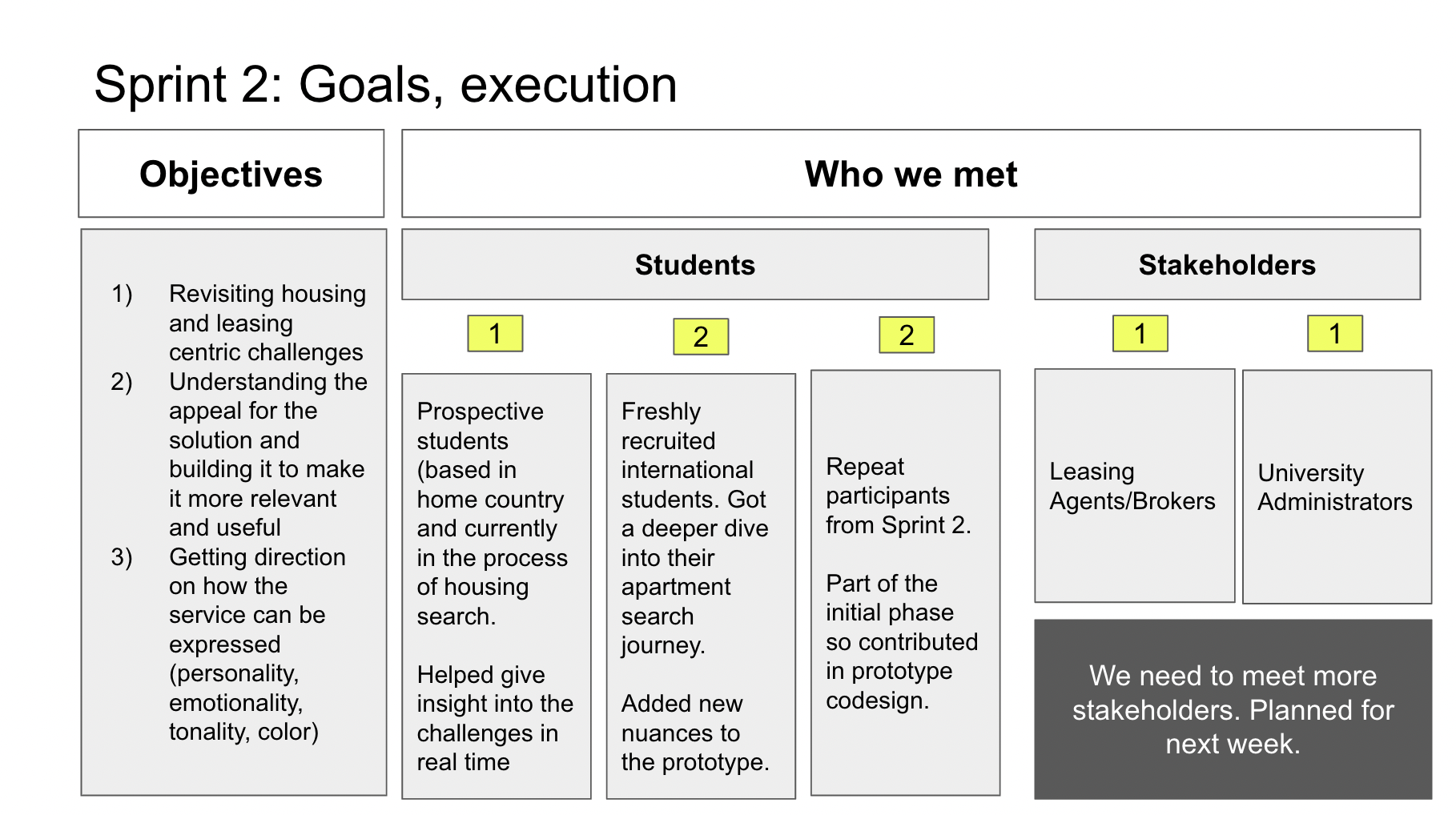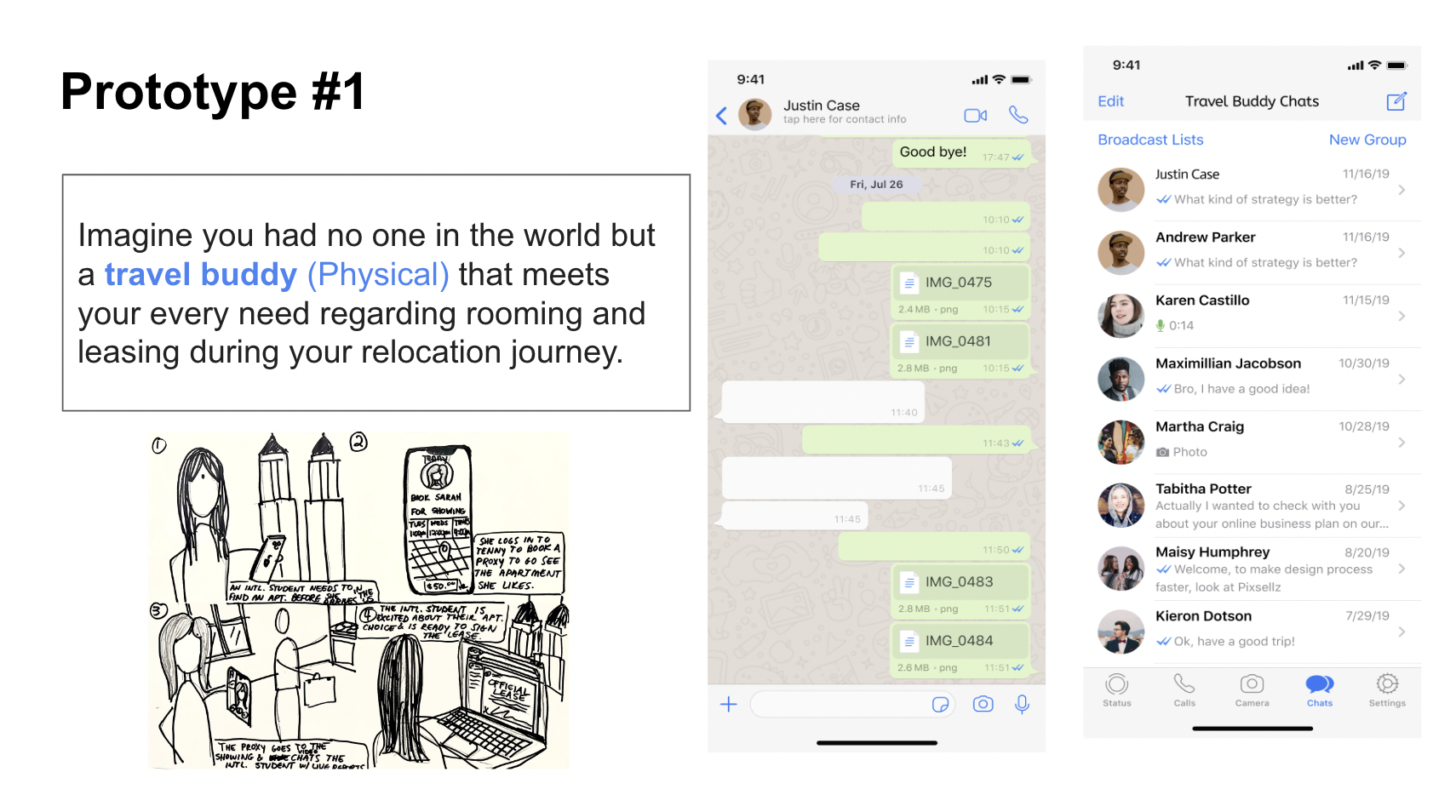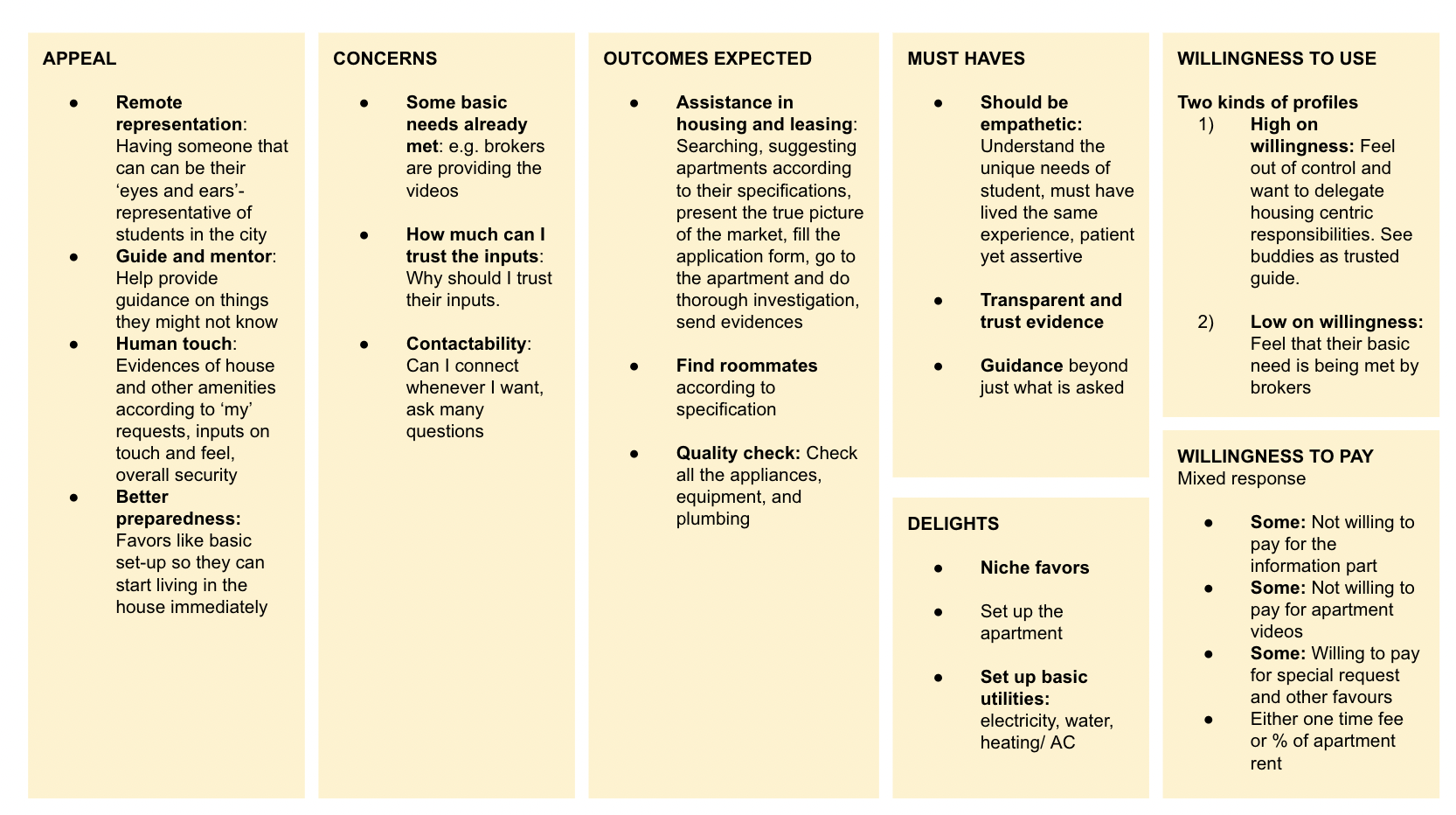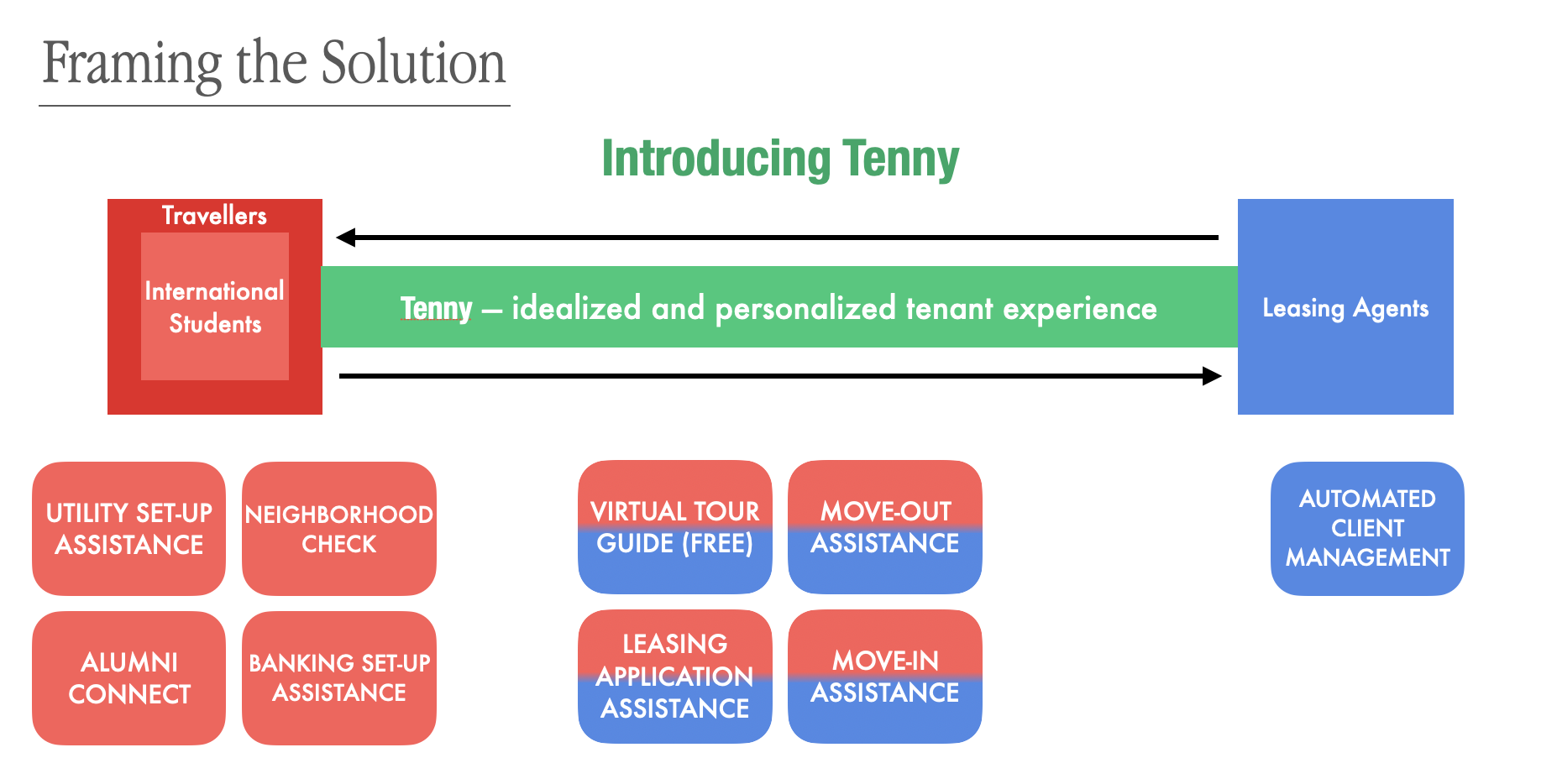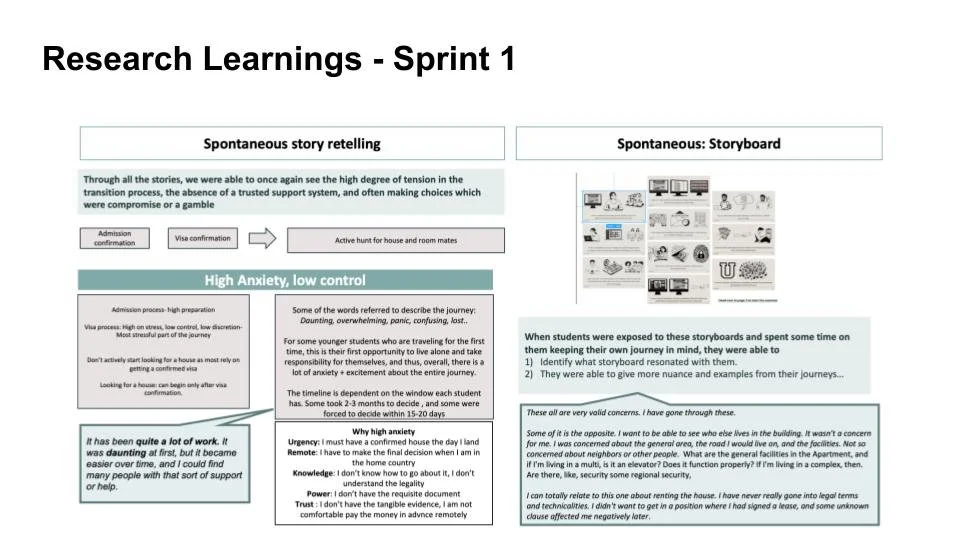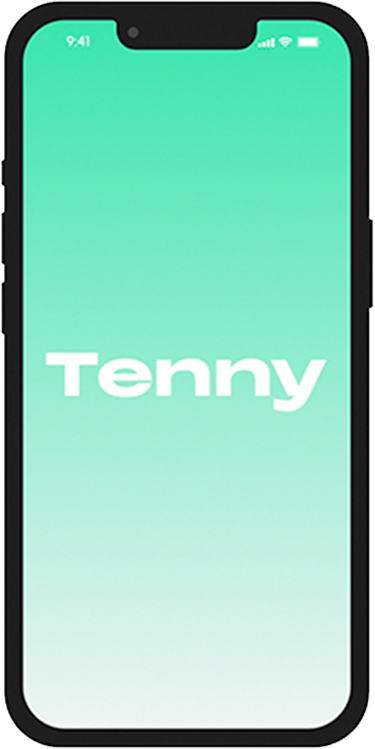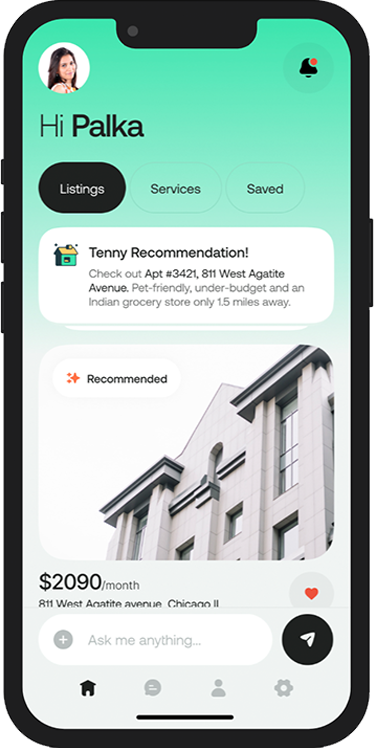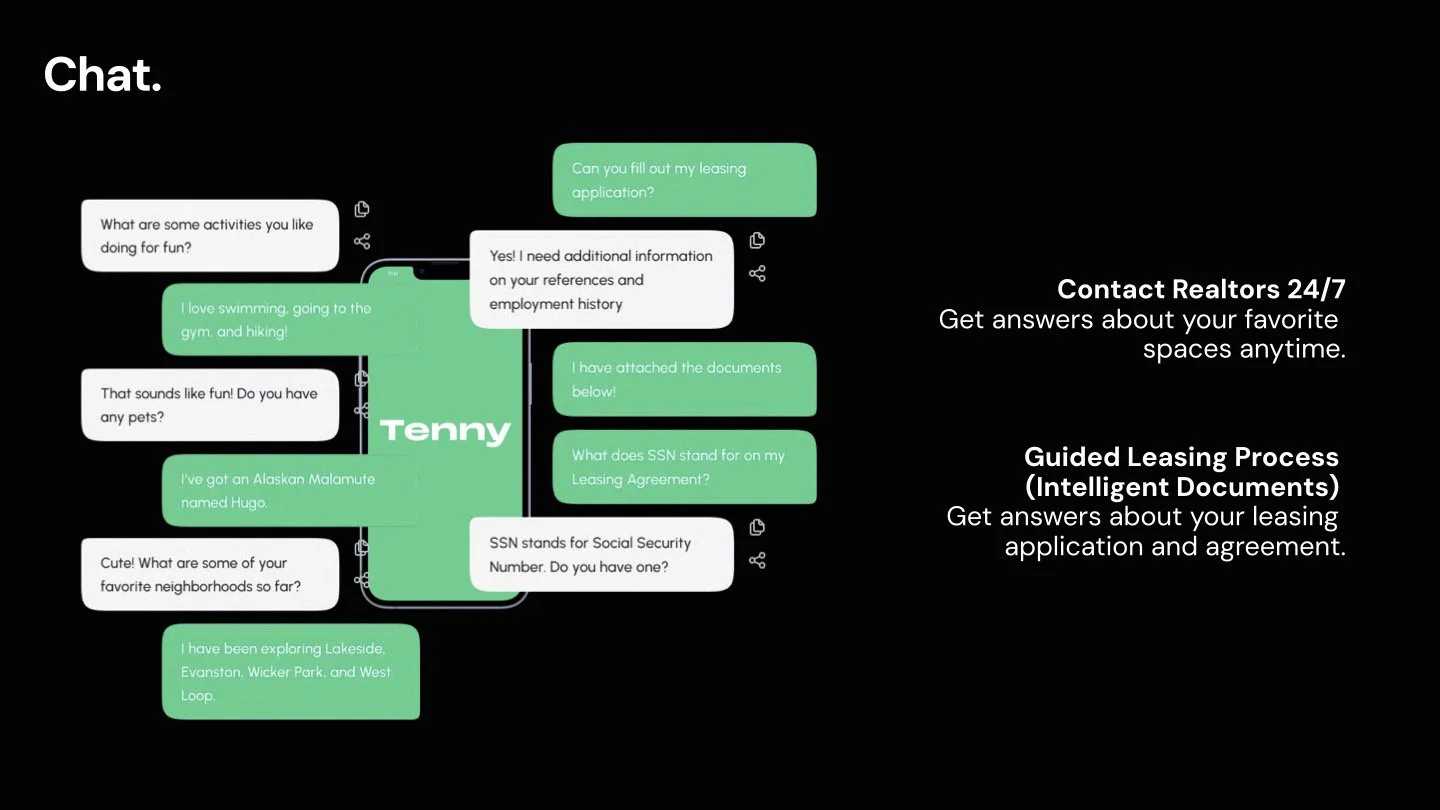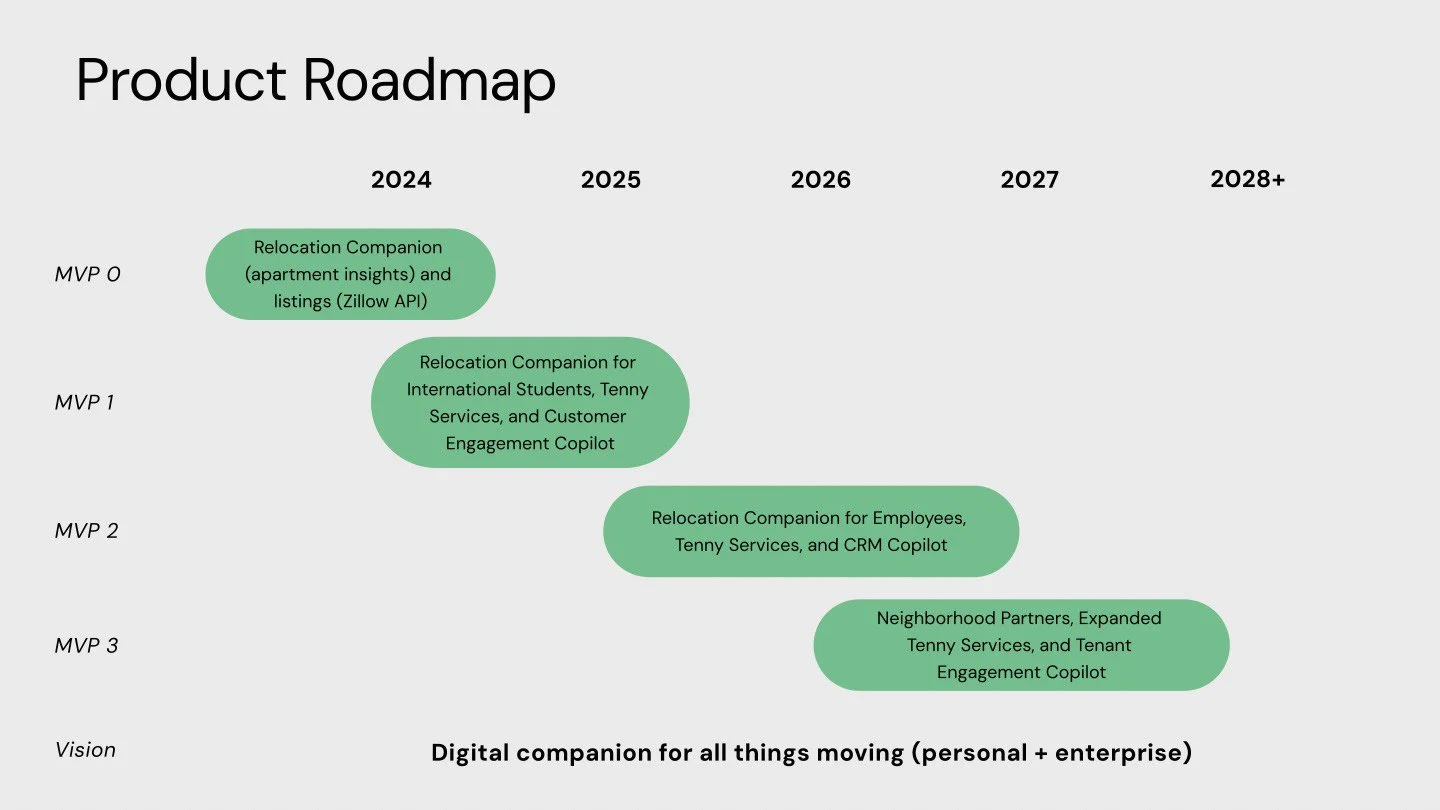Tenny was developed to address the unique challenges international students face when moving to a new country. Borne out of a comprehensive strategic design research process, this AI-powered tool helps students navigate logistical, social, and emotional aspects of relocation with ease. Through iterative research and ideation, my team developed a platform that helps students make empowered housing choices from anywhere in the world. The product focuses on improving the student relocation experience through personalized recommendations, integrating technology, and fostering community connections.
Phase 1 | User Discovery
In this beginning phase, we conducted cognitive contextual interviews with international students to better understand the aspirations and motivators of students moving to US, explore the relocation journey and student’s various steps, and identify the key touch-points, barriers, challenges and workarounds in the relocation journey.
Through our qualitative research, we learned that most students felt left to their own devices to find their way through the intricacies of the relocation process, oftentimes resorting to nonstandard and inefficient workarounds to the obstacles they faced.
Our mission became clear, we needed to create a solution to help international students seamlessly relocate to a new country – a tool to guide them through the critical junctures of their journey.
Phase 2 | Design Sprints
Sprint 1 — During Sprint 1, our research uncovered that international students face significant challenges navigating the relocation process due to a lack of knowledge, trust, and power when interacting with disjointed services. The insights informed the development of key pillars—Knowledge, Trust, and Power—defining our platform’s value proposition.
The sprint highlighted that students need access to verified information and trusted stakeholders to make informed decisions before arriving in a new country. Trust emerged as a critical factor, and strategies like verification/authentication, university-backed guarantees, and stakeholder recommendations were pivotal in instilling confidence. Additionally, the demand for process standardization and optionality revealed monetization opportunities, particularly through a humanized platform interface.
Impact-wise, this sprint reframed the platform as an outcome-focused solution that addresses international students’ primary and secondary Jobs to Be Done (JTBD). This research not only refined our user personas but also led to feature prototypes for the next sprint, ensuring alignment with both user needs and partner (university/leasing agent) expectations.
Sprint 2 — During this design sprint, we engaged with various stakeholders, including prospective students, leasing agents, and university administrators, to uncover key pain points and inform prototype development.
Key learnings included the overwhelming complexity of legal documents, a lack of personalized housing options, and the need for remote representation to navigate these processes. We also found that students prioritize security, proximity to public transport, and a seamless move-in experience, often requiring third-party assistance. Our first contact with leasing agents gave us a deeper look into their workflows and processes, so that we could begin to assess the importance of their role in the international student journey and as a potential user.
The insights led to a human-digital hybrid solution—combining the trust and personalized help of a physical buddy with the convenience and availability of a digital assistant. This approach ensures a more informed and confident relocation experience, targeting both emotional needs and practical requirements, while addressing gaps in current solutions.
Our design decisions focused on building trust, reducing cognitive load, and providing tailored recommendations—resulting in an improved user experience that empowers students to make well-informed decisions throughout their journey.
Sprint 3 — Going in to Sprint 3, our goal was to dig even deeper into the real estate professional’s journey. Extensive primary and secondary research on leasing agents revealed critical gaps in their ability to manage communication, lead generation, and customer service, particularly when serving international students. Contextual interviews highlighted that leasing agents are often overwhelmed by manual CRM tasks, leading to inefficiencies and lost revenue. The sprint's research emphasized the need for automation and personalization in the leasing process, proposing a digital assistant to streamline tasks, such as text-based communication, virtual tours, and personalized marketing.
The key insights drove the development of a solution focused on enhancing the customer relationship management (CRM) process, improving workplace productivity, and empowering leasing agents to focus on revenue-generating activities like renewals and occupancy. These learnings informed the strategic design of a digital assistant, aimed at automating routine tasks, reducing errors, and providing an optimal experience for both leasing agents and prospective tenants.
Phase 3 | Final Venture Development
The final vision for Tenny is to create a dynamic platform that redefines the relocation experience for international students by offering a personalized, outcome-driven solution. Tenny serves as a conversational AI companion, streamlining the housing search, leasing process, and move-in/move-out services.
Tenny’s core features address the challenges international students face. By leveraging intelligent document processing and real-time chat support, Tenny reduces friction in the leasing process and provides tailored apartment recommendations based on individual lifestyles. It also partners with local service providers to ensure students feel at home from day one, offering assistance with essentials like furniture setup and groceries. On the realtor side, Tenny automates lead qualification, tracks conversations, and boosts engagement, ultimately increasing conversion rates.
How do we plan to grow Tenny? Tenny’s product roadmap is structured across several key milestones to evolve from a specialized solution for international students into a broader relocation platform that can serve multiple markets. By focusing on both user needs and partner outcomes, Tenny delivers a seamless relocation experience, positioning itself as a vital tool in the real estate ecosystem.


